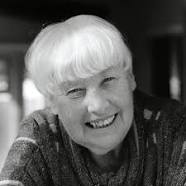This article has multiple issues. Please help improve it or discuss these issues on the talk page . (Learn how and when to remove these messages)
|
Frances Tustin | |
|---|---|
 from Frances Tustin Memorial Trust | |
| Born | Frances Daisy Vickers October 15, 1913 Darlington, County Durham, England |
| Died | 1994 (aged 80–81) London, England |
| Spouse | Arnold Tustin |
| Scientific career | |
| Fields | Psychotherapy |
| Institutions | University of London |
Frances Tustin (born Frances Daisy Vickers; 1913) was a pioneering British child psychotherapist renowned for her work with children with autism in the 1950s. She became a teacher and began studying psychoanalysis in 1943 at the University of London. [1]
Contents
Following the war, in 1950 she began the child psychotherapy training headed by the psychoanalyst Esther Bick in the children's department of London's Tavistock Clinic, which was chaired by the pioneer in child development John Bowlby.